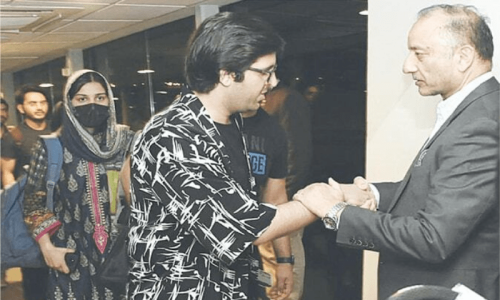NEW DELHI, Jan 9: India’s missile scientists have said that the country’s indigenous missile programme is flagging and needs foreign assistance to revive it.
The embarrassing admission came amid claims by Indian analysts that Pakistan’s missile programme had proved to be more robust and surefooted than India’s. The Mail Today newspaper on Wednesday quoted the Defence Research and Development Organisation (DRDO) as announcing that it would scrap its 25-year Integrated Guided Missile Development Programme (IGMDP) by the end of this year.
“Plagued by cost overruns and repeated failures, the announcement is a virtual admission of failure,” the newspaper said. “In fact, some former chiefs of the different services said as much on hearing the news.”
Speaking of the Trishul surface-to-air missile that has now been termed a technology demonstrator, former naval chief Sushil Kumar said: “It was a national embarrassment. DRDO made fake claims for 25 years. In the 1999 Kargil conflict, the navy was vulnerable to attacks from Pakistan’s Harpoon.
“Finally the project was scrapped when the navy went in for the Israeli Barak missiles. The Prithvi’s naval variant, Dhanush, is also flawed and ill-conceived, which is being inflicted on the navy.”On the Akash missile, which was the subject of the DRDO media conference here on Tuesday, former air chief S. P. Tyagi said: “Akash was to be ready at a certain time, but it wasn’t. I had to change everything to make up for the delay.” Both missiles were part of a programme to develop indigenous weapons, which began in July 1983, with plans for Agni, Prithvi, Trishul, Akash and Nag missiles.
The IGMDP, which was aimed at achieving self-sufficiency in missile development and production, comprises five core missile programmes -- the strategic Agni ballistic missile, the tactical Prithvi ballistic missile, the Akash and Trishul surface-to-air missiles and the Nag anti-tank guided missile.
The Mail Today quoted S. Prahlada, chief of the Control Research and Development, DRDO, as saying that development and production of most of the futuristic weapon systems would henceforth be undertaken with foreign collaboration.
With regard to the nuclear-capable Agni series, comprising I and II, the newspaper quoted army sources as saying while they had been tested five times each “a handful of tests are not enough to prove a missile’s worth”.
There were different problems with other systems too.
“Pakistan has always been one step ahead of India in its missile programme,” the newspaper said, adding that Islamabad has “a much more robust missile force than India, one capable of launching nuclear weapons to any part in this country.”
Unlike Indian missiles, which were declared “inducted” after a few tests, the Pakistani projectiles have always been thoroughly tested.













































Dear visitor, the comments section is undergoing an overhaul and will return soon.